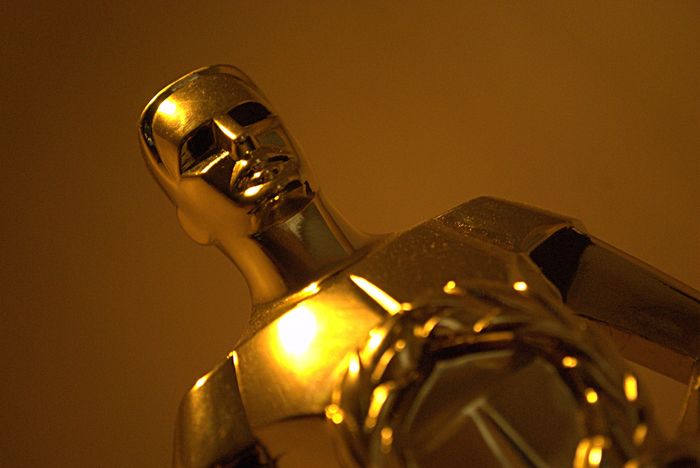Hollywood’s female director problem
The film industry is beset with deep-rooted sexism, says Beatriz Valero de Urquia, but the future of women filmmakers is not without hope.
The Oscar nominations were announced last week, and the announcer at the ceremony congratulated ‘the men’ who had received a nomination for Best Director. By doing this she stressed the fact that, once again, no women have been nominated for this award.
In fact, since the Academy Awards first aired in 1929, only five women have been nominated for Best Director at the Academy Awards: Lina Wertmuller (Seven Beauties), Jane Campion (The Piano), Sofia Coppola (Lost in Translation), Kathryn Bigelow (The Hurt Locker), and Greta Gerwig (Ladybird). Only one of them won.
This is, however, a problem larger simply than award boards failing to recognise female talent. What it demonstrates is a resistance towards granting women access to decision-making roles like that of director. According to the 5050x2020 initiative, 96% of Hollywood film directors are male.
While the film industry has no problem hiring actresses, it is much more complicated for female creatives to obtain a leadership role behind the camera.
Those women that manage to become directors then fail to be recognised for their work
The Chair of Time’s Up UK, Dame Heather Rabbats, gave the BBC two reasons for the lack of women in directing roles. First, ‘people tend to recruit in their own image’: the majority of directors are men, and they hire men. Secondly, ‘[directing] has not been a role where women have seen many other women role models’.
In the 2015 documentary Half the Picture, Amy Adrion called out deeply-ingrained sexism in the entertainment industry. ‘You realise what a loss it is that [women] haven’t been able to contribute to our culture as much as they should.’
In that documentary, Catherine Hardwicke shares the experience of directing Twilight, and how she was told that she’d never make more than the popular The Sisterhood of the Travelling Pants, which made $29 million. Even after the movie grossed $393.6 million, Hardwicke was paid half as much for her next film and was not offered the three-picture deal to direct the rest of the franchise that is so often offered to men.
Even those women that manage to become directors then fail to be recognised for their work. There was certainly not a lack of female candidates for this year’s Best Director Academy Award. Lulu Wang (The Farewell), Lorene Scafaria (Hustlers), Marielle Heller (A beautiful day in the Neighborhood), Olivia Wilde (Booksmart), and Greta Gerwig (Little Women) could all have been nominated - none of them were.
The Academy is not the only award committee that has excluded female directors from its list of nominations. Barbra Streisand still remains the only woman ever to win a Best Director Golden Globe, and only four women have ever been nominated for it. Last year, once again, no female directors were nominated in this category. Rebecca Goldman, chief operating officer at the Time’s Up, responded by saying that ‘who directs feature films matters. It affects what stories are told - and how - with far-reaching implications for women across the film industry and our broader society.’ Despite more women-led features and more films by female directors, women - especially women of colour - continue to be sidelined. ‘It is an industry-wide crisis.’
There is hope, however, as the industry begins to react to challenges.
The Cannes Film Festival is one festival trying to better recognise females behind the camera. Their 2019 selection included four films by women filmmakers among its 19-strong lineup: Mati Diop’s Atlantique, Jessica Hausner’s Little Joe, Celine Sciamma’s Portrait of a Lady on Fire, and Justine Triet’s Sibyl. Overall, 13 female directors are represented in the 47-film official selection. This list of female nominations follows the festival’s 2018 commitment to the 5050x2020 gender parity initiative.
But this change has been created only by pressure and protest. The commitment came as a response to the 2018 red carpet protest of 82 of the film industry’s biggest names. The Cannes jury president Cate Blanchett read their statement: ‘we stand together on these stairs today as a symbol of our determination and commitment to progress.’
More festivals are committing themselves to the 5050x2020 initiative, such as Berlin, Locarno, Venice, TIFF, DOC NYC, and London. Even smaller festivals like the Hamptons, Mill Valley, Annecy, Oxford, Rome, Stockholm, and Goteborg have signed the pledge. Some festivals have even managed to achieve near-gender equality: women directed 46% of the competition films at last year’s Sundance Film Festival, and 40% of the ones at the Berlin Film Festival.
The change the 2018 protest sparked, and the potential for change that it heralds, leaves us room to be hopeful about future prospects for the recognition of female directors.
 News / Hundreds of Cambridge academics demand vote on fate of vet course20 February 2026
News / Hundreds of Cambridge academics demand vote on fate of vet course20 February 2026 News / Judge Business School advisor resigns over Epstein and Andrew links18 February 2026
News / Judge Business School advisor resigns over Epstein and Andrew links18 February 2026 News / Petition demands University reverse decision on vegan menu20 February 2026
News / Petition demands University reverse decision on vegan menu20 February 2026 News / CUCA members attend Reform rally in London20 February 2026
News / CUCA members attend Reform rally in London20 February 2026 News / Caius students fail to pass Pride flag proposal20 February 2026
News / Caius students fail to pass Pride flag proposal20 February 2026










